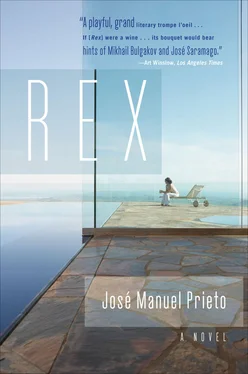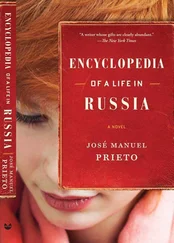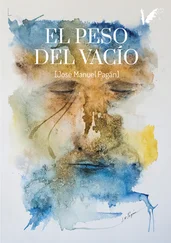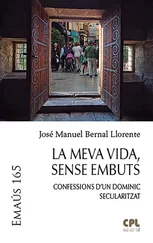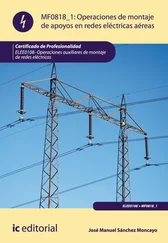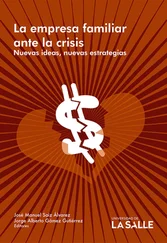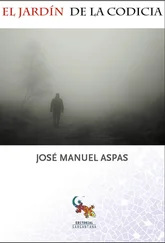The light almost gone out of the afternoon behind him, the swimming pool’s water grown denser. No one else outside, nothing to keep him from coming in, putting a bullet in me or dragging me out, paralyzed, not daring to move a muscle, to drown me in the pool like a puppy, transmitting that water into my eyes, my trachea: the inadvisability of having wanted to kiss the boss’s wife.
But I hadn’t kissed her! Do you hear me, Vasily? I hadn’t kissed her, I hadn’t taken, so to speak, my turn. I would die not only without guilt, but also without even having kissed her. Vasily!
Nelly was smiling, still dancing though she’d seen him now, her husband, in a turn of our ridiculous dance, halfway through that awful song. Yes, awful. I would be the … what number would I be, Petya? How many tutors had you had before me, how many of them had Vasily gotten rid of already after finding them, like me, seducing or being seduced by his wife? I can explain everything, Vasily! The fright, the terror, like a bolt of lightning scorching everything in its path, exploding everything inside me, soldering me with its fire, rewiring me for life, leaving only certain combinations of synapses activated.
And how is it that this doesn’t figure in the books that someone — I, for example — someone sitting down to write, would write?
Inconceivable, unthinkable, always in me, from that afternoon on, Vasily’s darkening silhouette, before he came in and threw … And threw nothing and no one out! Casually coming toward me as if only going to switch off the stereo and then, having gone past or pretended to have gone past me, turning back to slip a knife between my ribs with Nelly screaming “Vasily, the carpet!” (which she didn’t do). The scream I was about to let out like the black slave surprised by Schahzaman, which echoed in my head, now wired or reprogrammed forever. I screamed, within myself: Rex! Rex! Rex! Rex tremendae majestatis! Overwhelmed with panic, as in Mozart. Can you believe me?
4
Now: if time is a discrete or discontinuous magnitude, then tiny spaces must exist between its smallest fractions, little gaps in which no time whatsoever transpires, minute spaces of eternity.
And someone, a man, who had reasoned out the intermittent structure of time, could take advantage of this, slow his body’s revolutions, discover, beyond a certain point, those interstices, like windows in the air, passageways to eternity, a substrata of nontime in which the hours stand still. Catching up to it there, advancing toward the beginning of my stay in your house, the moment before my arrival, when I should not have knocked on the door, banged the knocker, rung the bell insistently. Or else flying in the opposite direction, toward the plot’s denouement, with all mysteries resolved, its keys laid out in front of me, deciphered.
Or like the thief of the peaches of longevity, in the Writer, who impassively observes his pursuers, Forcheville and Andrea, hopping with impotence from the other side of the canvas, unable to lay a hand on him. A journey like that, immediate or sudden. Not the one in which I rode along trembling, from the moment Vasily asked me to get into the Mercedes, and we sliced through the air at a thousand miles an hour. Looking, he said, for a place to set me down, the cliff where I’d been with his wife hours earlier, an isolated spot where he could settle accounts with me, because his wife should never, in a burst of sincerity and frankness.
Let in now on the dirty secret, going to die now because of the dirty secret of that money. Trembling and hating myself for having allowed myself to be softened up and won over by his lovely spouse.
I thought of Lifa, the only person in the whole house who really loved me. Who, having seen me get into the car, hands behind my back, eyes vacant, would try to contact someone, call the Royal Canadian Mounted Police or the Guardia Civil (it didn’t matter! whichever could reach me first!).
Out of a mistake on Lifa’s part, a confusion, but that’s fine, I accept it. For she’d taken the Book for that other book and I’d allowed her to retain that belief. The apparent devotion with which I pressed the Book to my heart made her notice it, believing she had discovered in my hands — in the volume in octavo I always held open, toward which I lowered my nose, over which, following the lines, my nose and eyes would move, my brain scanning page after page, tirelessly — a breviary, a Gospel I was reading, far from home, finding myself among strange people and bewildered by my fate.
No other book could be the object of such veneration, could be read with such devotion. She didn’t fail to notice that I would skip pages, whole sections, that I put my finger in without looking, letting the settling of the pages (I was watching Nelly come into the garden instead), the sun shining on their gilded edges, determine my reading for the day. And when finally they (the pages) fell to one side or the other, I would lower my gaze and plunge into the passage, the minuscule figures of Gilberte de Swann or Princess Mafalda activated by their contact with my eyes, the whole scene in the Book coming to life.
The way she had of stopping things in midair, Lifa, and then moving about among them, dodging the frozen flies, the immobile birds three feet off the grass, passing through them like someone going past a hummingbird in a tropical garden. It was she who managed to save me from your father’s wrath that afternoon: she slowed down the flow of the day, stopped the sun in the sky, made it give light for more hours, interfered in Vasily’s plan and kept him from finding, as we traveled along that highway, any gulf of darkness, any cloud along the horizon to go into, the blade of his knife or small red dagger coming at me, glinting amid the cottony white.
Vasily peered out the window of the car several times, slowed down on several occasions, but then had to go on, accelerating with rage, the sun obstinately in the sky, the overabundant daylight. Still shining in all its splendor when he turned the wheel and we drove down the circular driveway of a mansion or enormous house, also on the beach.
5
I found her where a beauty of that kind should be. The Writer’s description of those women in their luxurious Fortunys, like ships, he writes, with sails unfurled, floating lightly through parks and that gardenlike forest in Paris. They’re closer to us now, those women, we can see them without the impediment of a garment: easily visible on the beaches or next to a swimming pool. Larissa.
The way the sun played on her half-raised arms, her flat stomach, her manicured nails. Not a vulgar platinum blonde but a platinum blonde of the most sophisticated type. The way she spoke elegantly on a topic about which I could gain no clear idea (thinking still of the danger I’d just been through). Without understanding, I repeat, what the woman was talking about, but understanding the way in which she was addressing her subject: with absolute elegance and poise, someone from the same institute among the trees where Vasily had worked his whole life.
The way she stood up with total innocence, devoid of coquetry, walked in front of me, cutting through the air as she went for something, a hairband on an adjacent lounge chair, raising her arms to tie her hair back, still talking, holding it for a moment between her teeth, the hairband, muttering something I understood perfectly (and which did not amaze me: that Vasily had been there last week and hadn’t flown to Amsterdam as he’d claimed), her breasts taut beneath the bikini top, rosy in the afternoon light, soft and round. The veins or blood vessels beneath her skin like those new telephones made of translucent plastic, designed to show the electronics running through them, and glowing, a red light coming on when someone calls (instead of a ring). And even if the afternoon light hadn’t finally ceased to shine and the sun that had remained in the sky for so many hours (in answer, perhaps, to my prayer for more light, first to try to kiss your mother, and then for fear that Vasily would finish me off) had not finally disappeared into the deep darkness of a suddenly fallen night, this woman would have glowed like a creature from another world, from Epsilon Indi of the constellation Tucana, myriads of photons shining through her pores as if she were an angel or one of the stones that had phosphoresced in my hand. Equally disturbing, this effect.
Читать дальше
